American Express loses its final appeal – it must cut its interchange fees
Links on Head for Points may pay us an affiliate commission. A list of partners is here.
The end could be approaching, medium term, for the free British Airways American Express credit card after American Express finally lost a key European Union ruling yesterday.
The decision means that the implicit interchange fee on the British Airways, Starwood, Nectar, Costco and Harrods American Express cards must be capped at 0.3%. American Express Gold, Platinum, Business Gold and Business Platinum will remain uncapped.
In effect, although this is not strictly how it works, for Visa and Mastercard products the interchange fee is the bulk of the fee charged to a retailer for accepting a payment card and represents the cut taken for the use of the Visa and Mastercard processing networks. Other fees cover terminal rental and incidental costs involved in accepting cards.
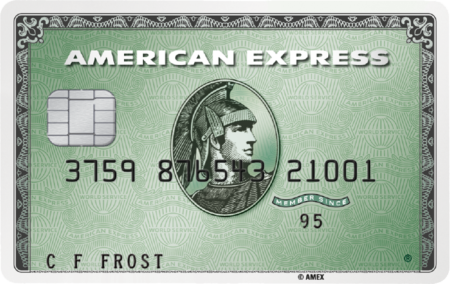
We first wrote about this last July when the EU’s Advocate General published his guidance to the European Court of Justice. He advised the ECJ to find against Amex, and yesterday the ECJ agreed.
You can read the European Court of Justice ruling here.
It doesn’t take a genius to realise that the free British Airways American Express is a dead duck long term with 0.3% implicit interchange fees, given that Amex will be paying BA something close to 1p per Avios for the points. Interest income, terminal rental and FX fees from foreign usage are unlikely to fill the gap, especially with 2-4-1 vouchers to fund as well.
Given that the BA Amex cards have billings of over £1 billion per month, however, it is a problem that both BA and Amex will need to solve before the current contract expires.
Background
Let’s step back a bit.
In 2016, the EU capped the interchange fees charged by Visa and Mastercard at a maximum of 0.3% for personal credit cards and 0.2% for personal debit cards. Fees were previously 0.75% and above.
It claimed, arguably correctly, that the two companies were exploiting their oligopoly on payment processing by charging disproportionate fees, especially as all of the risk was taken by the retailer (in case of charge backs) and the card issuer (in case of bad debts).
In theory, American Express should have nothing to do with this. Amex is vertically integrated and there is no intermediary sitting between the retailer and Amex who is adding additional fees. A retailer was free to either work with Amex, paying the fees they requested, or not.
The EU law is badly worded, however. It states (and this is a massive simplification on my part) that personal cards which involve four parties – for Visa, this is the customer, the retailer, the payment processer and the card issuer – must have their interchange fees capped.
American Express Gold and Platinum charge cards, and Platinum cashback cards, clearly only have three parties involved in the process – the customer, the retailer and Amex. No problem there. These cards are not and will not be capped.
However, the court has found that, as drafted, an Amex-issued card with a co-brand partner means that there is a fourth person in the relationship. The BA Amex involves British Airways, American Express, the retailer and the customer. And if a card has four parties involved, it MUST have its implicit interchange fee (although no-one is clear how this should be calculated as part of Amex’s overall fees) capped at 0.3%.
This was the question put to the Advocate General:
“The referring court asks the Court of Justice to clarify whether, in those circumstances, the activities of a three party scheme can be treated as those of a four party scheme, for the purposes of the Regulation in all cases (in other words, it is sufficient that there is a co-branding partner or agent) or only if a co-branding partner or agent is a payment service provider which issues the cards.”
The latter bit – “only if a co-branding partner or agent is a payment service provider which issues the cards” – is what happens when MBNA issues an American Express card. No-one is doubting that these cards should have their interchange fees capped.
Surely, though, there is a huge difference between MBNA licensing the Amex brand in order to issue a credit card and American Express using the BA brand to sell its own cards? As the original Advocate General ruling admitted:
“[the co-brand partner would] merely provide the three party scheme with access to their customer base”
And:
“Amex and the United Kingdom Government submit that, if the co-branding partner or agent confines its activity to the distribution of cards, technical payment services or simply the processing and retention of data, it does not act as an issuer, so that arrangements for the extension of three party schemes are not covered by Articles 1(5) and 2(18) of the Regulation, which means that they cannot be considered to be the same as four party schemes.”
What is more complex is that American Express doesn’t even charge interchange fees because there is no intermediary. There are no interchange fees to cap. Instead, it has to cap its general fee charged to retailers. This will presumably need to be set at a level similar to the total fees now charged to retailers for accepting Visa or Mastercard.
To give an example of how this comes down to interpretation of the exact wording of the law:
“In their submission, Articles 1(5) and 2(18) of the Regulation refer to three party schemes which ‘issue [cards] with a co-branding partner’ and which ‘issue [cards] through an agent’. They [Amex et al] contend that the terms ‘with’ and ‘through’ show that the co-branding partner or agent must be involved in the issuing of the card, to which end they rely on the connection between those provisions and other provisions of the Regulation.”
Amex lost:
“In short, Articles 1(5) and 2(18) of the Regulation must be interpreted as meaning that a three party payment card scheme issuing card-based payment instruments with a co-branding partner or through an agent must be classified as a four party payment card scheme, regardless of whether or not the partner or agent is involved in the issuing of cards and/or the acceptance of payments.”
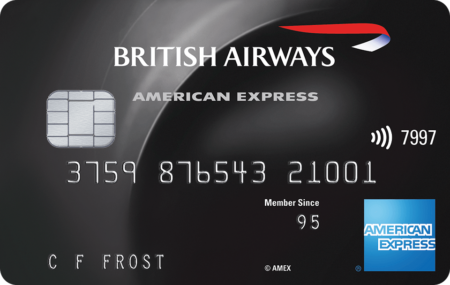
What does this mean for the British Airways American Express and other co-brand Amex cards?
We can’t be sure. I asked Amex for a statement yesterday and they said:
“We are currently reviewing the Court’s judgements. We can, however, confirm that we have been preparing for this ruling and are committed to continuing to offer best-in-class products and services that deliver value for customers and co-brand partners. American Express Card Members can continue to use their cards as normal”.
In the short term nothing changes, because the existing contracts will continue to run. Unless there are a lot of people paying interest, it is likely that American Express will now be swallowing losses on every transaction on the free British Airways American Express.
The British Airways Premium Plus card, with its £195 fee, looks secure. I can see how the economics of that card continue to make sense in a world of 0.3% implied interchange fees.
The Nectar Amex looks in trouble, given its low annual fee and 0.5% cashback rate. The Starwood Amex will reach the end of its natural life next January when SPG and Marriott Rewards merges – it isn’t clear if Amex will continue with a card beyond that.
Amex has a strategic problem in the UK
With its fees on co-brand cards capped at the same level as personal Visa and Mastercard products, there should no reason for shops not to accept it. Amex acceptance could become universal. This is a great opportunity if the company chooses to embrace it.
Except ….. for that to happen, Amex would have to slash the rate on the Gold and Platinum charge cards and Platinum cashback cards too, even though it doesn’t have to. Shops won’t welcome Amex with open arms if they know that they will still get legged over if the cardholder pulls out a Preferred Rewards Gold instead of a British Airways Amex.
Shops have this problem with Visa and Mastercard too, to be fair. They still pay full interchange fees on cards issued outside the EU and on business Visa and Mastercards. In theory shops will be allowed to refuse cards which charge higher fees but it is very unlikely that they will. It would require terminals to display the fee after a card is swiped and for the retailer to then decide on the spot whether to continue or refuse the transaction.
What happens next?
Good question. In two weeks, I am speaking at a major Co-Brand Credit Cards conference in London where we will discussing these issues in more detail. I will hopefully be able to bring you some more news – or at least speculation – after that.
Want to earn more points from credit cards? – December 2021 update
If you are looking to apply for a new credit or charge card, here are our November 2021 recommendations based on the current sign-up bonus.
You can see our full directory of all UK cards which earn airline or hotel points here. Here are the top current deals:
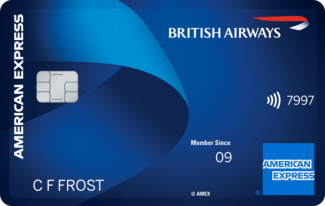
British Airways American Express
5,000 Avios for signing up, no annual fee and an Economy 2-4-1 voucher for spending ….. Read our full review
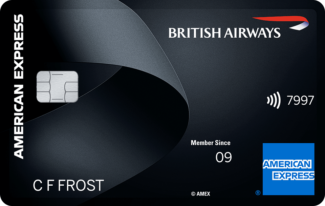
British Airways American Express Premium Plus
25,000 Avios and the UK’s most valuable credit card perk – the 2-4-1 companion voucher Read our full review
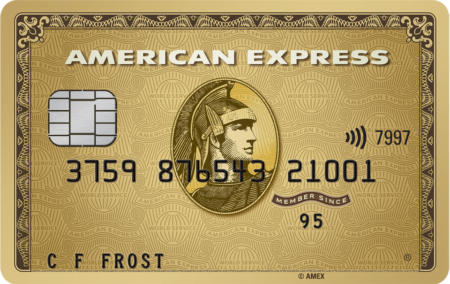
American Express Preferred Rewards Gold
Your best beginner’s card – 20,000 points, FREE for a year & two airport lounge passes Read our full review

The Platinum Card from American Express
30,000 points and an unbeatable set of travel benefits – for a fee Read our full review
Earning miles and points from small business cards
If you are a sole trader or run a small company, you may also want to check out these offers.
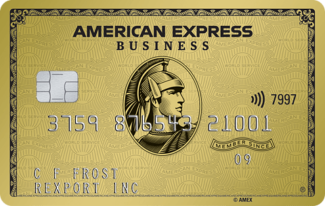
American Express Business Gold
20,000 points sign-up bonus and free for a year Read our full review
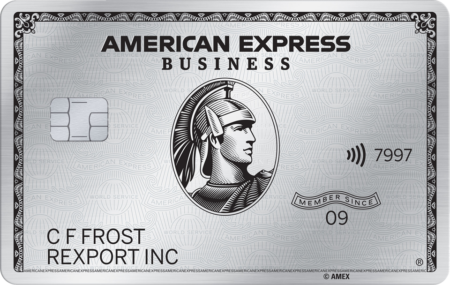
American Express Business Platinum
40,000 points sign-up bonus and a long list of travel benefits Read our full review
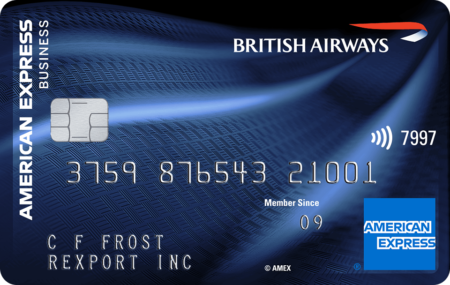
British Airways Accelerating Business American Express
30,000 Avios sign-up bonus – plus annual bonuses of up to 30,000 Avios Read our full review

Capital On Tap Business Rewards Visa
The most generous Avios Visa or Mastercard for a limited company Read our full review
For a non-American Express option, we also recommend the Barclaycard Select Cashback card for sole traders and small businesses. It is FREE and you receive 1% cashback on your spending:
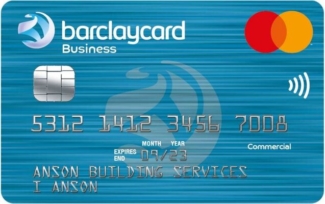
Barclaycard Select Cashback Credit Card
1% cashback and no annual fee Read our full review


 Rob
Rob 



Comments (121)